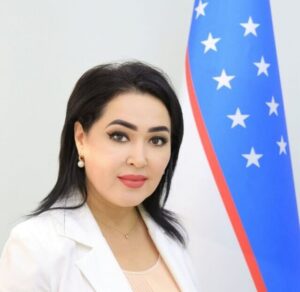Bukhara Branch of the Institute of Immunology and Human Genomics of the Academy of Sciences of the Republic of Uzbekistan
The laboratory’s research is focused on expanding and deepening modern knowledge in the field of maintaining the constancy of the internal environment of the body – the mechanisms of regulation of the immune system, especially the cellular and molecular mechanisms of activation, proliferation and differentiation of human T and B cells.
In 2023, the Institute of Immunology and Human Genomics was established Bukhara branch at the Bukhara State Medical Institute under the name of Abu Ali Ibn Sina. The first head of the branch, Doctor of Medical Sciences, Professor N.I. Hikmatova, continues to lead the laboratory to this day.
During the existence of the laboratory, the following problems were studied:
- the influence of pesticides on the immune status of humans and experimental animals;
- immunological profile (normative indicators) of residents of various regions of the Republic of Uzbekistan;
- the influence of various factors (ecological, physical, chemical, etc.) on the immune system of experimental animals;
- Investigation of immune indicators in various pathological conditions (autoimmune diseases, metabolic disorders, pediatric somatic diseases, acute and chronic viral diseases of the liver, parasitic diseases, TORCH infections, etc.).
- The laboratory works in close cooperation with medical universities and research institutes of Uzbekistan, near and far abroad.

Nigina Izzatullayevna Hikmatova – Doctor of Medical Sciences, Professor
Brief information about the head of the branch
Nigina Izzatullayevna Hikmatova, Doctor of Medical Sciences, Professor, serves as the head of the Bukhara branch of the Institute of Immunology and Human Genomics of the Academy of Sciences of the Republic of Uzbekistan. N.I. Hikmatova is a renowned scientist who is highly respected in both national and international scientific circles.
From 2001 to 2012, Nigina Izzatullayevna Hikmatova worked as a resident doctor in the gynecology department of the Bukhara Multiprofile Regional Hospital.
From 2008 to 2012, she pursued independent research at the Bukhara Medical Institute and the Republican Institute of Obstetrics and Gynecology.
On April 12, 2012, she was awarded the protected scientific degree of Candidate of Medical Sciences.
From 2012 to 2022, she served as the chief physician, obstetrician-gynecologist, and mammologist at the Regional Medical Diagnostic Center.
Since 2019, she has been involved in organizing and expanding the “Doctor Nigin” family clinic, which is based at the Bukhara Medical Institute, where she serves as the director.
From 2021 to the present day, she has been working as an associate professor at the Department of Obstetrics and Gynecology No. 3 at the Bukhara State Medical Institute.
On February 14, 2023, she was awarded the scientific degree of Doctor of Medical Sciences.
Since October 5, 2023, she has been serving as the head of the Bukhara branch of the Institute of Immunology and Human Genomics.
Over the past 15 years, Nigina Izzatullayevna Hikmatova has had over 40 scientific works published in journals listed in the Higher Attestation Commission, including over 30 articles, more than 15 theses, 3 methodological recommendations, and presented 8 lectures. She has also participated in numerous foreign and domestic conferences and seminars. Additionally, she has published 4 monographs, 1 textbook, and 1 teaching aid.
Ismoilov Behruz Abdurahim oʻgʻli – Junior Researcher
Sadullayeva Lobar Said qizi – Junior Researcher
Kodirova Nasiba Lukmonovna – Laboratory Assistant
- Study of the cellular (Th1 and Th2) and humoral components of the immune system in various immunodeficiency diseases (viral, bacterial and fungal) in children and their mothers using molecular genetic methods.
- Monitoring the immune status of the population in various regions of Uzbekistan. Research on the influence of unfavorable environmental factors on the development of immunological deficiency.
- Experimental study of the cellular mechanisms of the immune response in immunodeficiency states. Search for new immunodiagnostic methods. Development of effective methods for immunocorrection and immunorehabilitation of immunodeficiency states using new immunotropic drugs.
